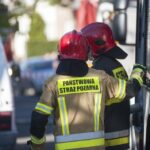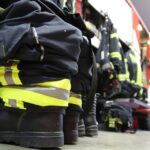The Role of Specialized Units within a Brigade
Within a military organization, a brigade is a key unit that consists of several battalions and is typically commanded by a brigadier general. Brigades are tasked with specific missions and are organized to fulfill a particular purpose. Within a brigade, there are specialized units that are essential for carrying out specific tasks and achieving objectives. These specialized units play a vital role within the brigade structure and are instrumental in ensuring the success of military operations.
1. Reconnaissance Units
Reconnaissance units are specialized units within a brigade that are responsible for gathering intelligence and conducting reconnaissance missions. These units are typically composed of highly skilled and trained personnel who are experts in gathering and analyzing information about enemy forces, terrain, and other critical factors. Reconnaissance units utilize a variety of tactics and technologies, such as drones, surveillance equipment, and advanced communication systems to gather vital intelligence for the brigade.
The information gathered by reconnaissance units is crucial for planning and executing military operations. By providing accurate and timely intelligence, these specialized units enable commanders to make informed decisions and adapt their strategies based on the latest information. Reconnaissance units also play a key role in assessing enemy capabilities, identifying potential threats, and determining the best course of action for the brigade.
2. Special Forces Units
Special forces units are elite and highly trained units within a brigade that are tasked with conducting specialized missions, such as unconventional warfare, counter-terrorism operations, and special reconnaissance. These units are composed of the best soldiers in the brigade, who undergo rigorous training and selection processes to become members of these elite units. Special forces units are trained in a wide range of tactics and techniques, including marksmanship, hand-to-hand combat, infiltration, and exfiltration.
Special forces units are often used in high-risk and high-stakes missions that require a high degree of skill, precision, and secrecy. These units are capable of operating behind enemy lines, conducting sabotage operations, and executing precision strikes against key enemy targets. Special forces units are also trained to work closely with indigenous forces, partner nations, and other agencies to achieve mission success.
3. Engineer Units
Engineer units are specialized units within a brigade that are responsible for providing engineering support and capabilities to the brigade. These units are essential for overcoming obstacles, constructing fortifications, and facilitating mobility for the brigade during military operations. Engineer units are equipped with specialized equipment, such as bulldozers, cranes, and explosives, to assist in construction, demolition, and obstacle clearance.
Engineer units play a critical role in enabling the brigade to maneuver and operate effectively in various environments, such as urban areas, deserts, and mountainous terrain. These units are responsible for constructing bridges, roads, and defensive positions, as well as conducting route clearance and minefield breaching operations. Engineer units also provide expertise in demolitions, explosive ordnance disposal, and other specialized engineering tasks.
4. Medical Units
Medical units are specialized units within a brigade that are responsible for providing medical support and care to the brigade’s personnel. These units are composed of medical professionals, such as doctors, nurses, medics, and corpsmen, who are trained to provide emergency medical treatment, surgery, and evacuation services. Medical units are equipped with advanced medical supplies, equipment, and facilities to support the health and well-being of the brigade’s personnel.
Medical units play a crucial role in ensuring the readiness and effectiveness of the brigade by providing timely and effective medical care to injured or sick personnel. These units are capable of setting up field hospitals, triage centers, and evacuation points to treat casualties and ensure that they receive the necessary medical attention. Medical units also provide preventive medicine, mental health services, and medical training to enhance the overall health and resilience of the brigade’s personnel.
In conclusion, specialized units within a brigade play a vital role in enhancing the capabilities and effectiveness of the brigade in conducting military operations. These units bring unique and essential skills, expertise, and capabilities to the brigade, allowing it to fulfill its missions and achieve its objectives successfully. By working together as a cohesive team, specialized units within a brigade contribute to the overall readiness, resilience, and success of the brigade in accomplishing its strategic goals.


